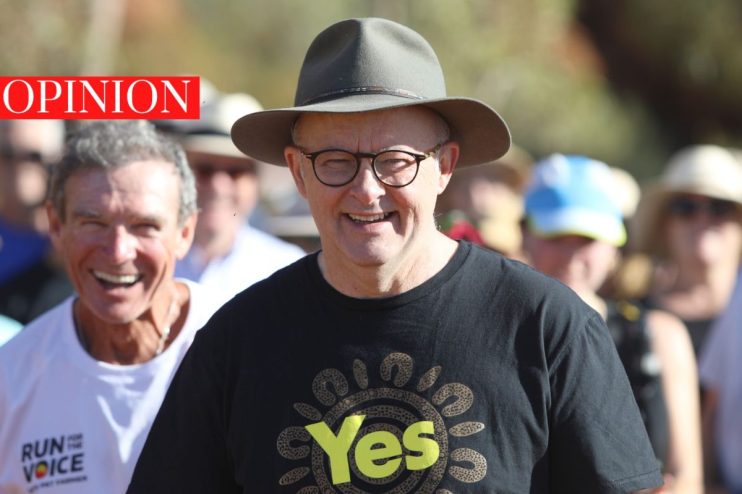Let’s be honest, culture wars campaigns won’t win voters in a cost-of-living crisis

Australians just showed us why campaigns based on culture war issues don’t work, writes Matthew Lesh
Last weekend, Australians voted decisively against a referendum to amend the constitution to create an Indigenous “Voice”. It was meant to be an advisory body on policymaking made up of Indigenous people, with the ultimate goal of helping to close the gap in life outcomes with non-Indigenous Australians. Just a year ago, the innocuous-sounding idea was backed by two-thirds of Aussies.
But on Saturday, it was rejected by 61 per cent of Australians and by a majority in every state. This result was not because of any ill will towards Indigenous people. All sides of the debate spoke about the need for genuine solutions to Aboriginal disadvantage.Rather, it floundered from a lack of detail – the government refused to say how the body would be chosen or function, or explain what benefits it would bring.
The associated legal risks allowed opponents to run effective “If you don’t know, vote no” messaging.
There was also a principled critique that the Voice would divide Australians by race, giving a minority a privileged position in policymaking. “It is creating a separate entity,” explained Senator Jacinta Nampijinpa Price, a prominent Indigenous campaigner against the Voice, “we should be considered Australian citizens and part of the fabric of this nation.”
The result echoes Brexit and Donald Trump in 2016. The proposal was overwhelmingly rejected in suburban, regional and rural Australia, and supported in wealthy and highly-educated, inner city areas. The Yes campaign – which included most political, business and cultural elites – labelled opponents racist and are using claims about dis/misinformation as a scapegoat for their failure.
There will be a temptation – including in the United Kingdom – to use this result to call for a renewed focus on cultural issues. But this would be a misreading of the result. The Voice proposal was a poorly executed overstep on the left of Aussie politics. It is not evidence in itself that the public wants a culture war. Quite the opposite.
The referendum was viewed, according to polling, as an unnecessary and expensive distraction from the far more precinct issues related to the cost of living, housing and energy. A Yes campaign source admitted to The Australian newspaper that their focus groups found cost-of-living issues were “number 1, 2, 3, 4-to-10”.
Other recent results also show that the public isn’t particularly interested in the culture wars. The New Zealand National Party, who over the weekend defeated an unpopular Labour government, focused on issues like poor economic growth, state incompetence and getting taxes down. Pierre Poilievre, who is on track to be the next prime minister of Canada, has developed an effective narrative around housing and inflation.
By contrast, in the United States, Republicans focusing on cultural war issues fared historically poorly in last year’s midterms. Despite losing the referendum, the Australian Labor government remains popular, and unlike David Cameron following Brexit, there is no prospect that Prime Minister Anthony Albanese will resign. Even the referendum victory has not delivered electoral benefits for Australia’s opposition. The best they will be able to do is paint the government as out-of-touch by wasting time and focusing on the wrong issues.
The real lesson from Australia may be that an excessive obsession with cultural battles over bread-and-butter issues is perilous for all sides.